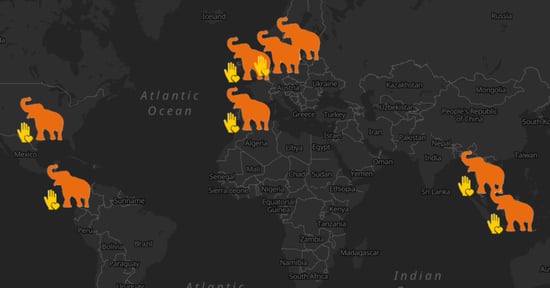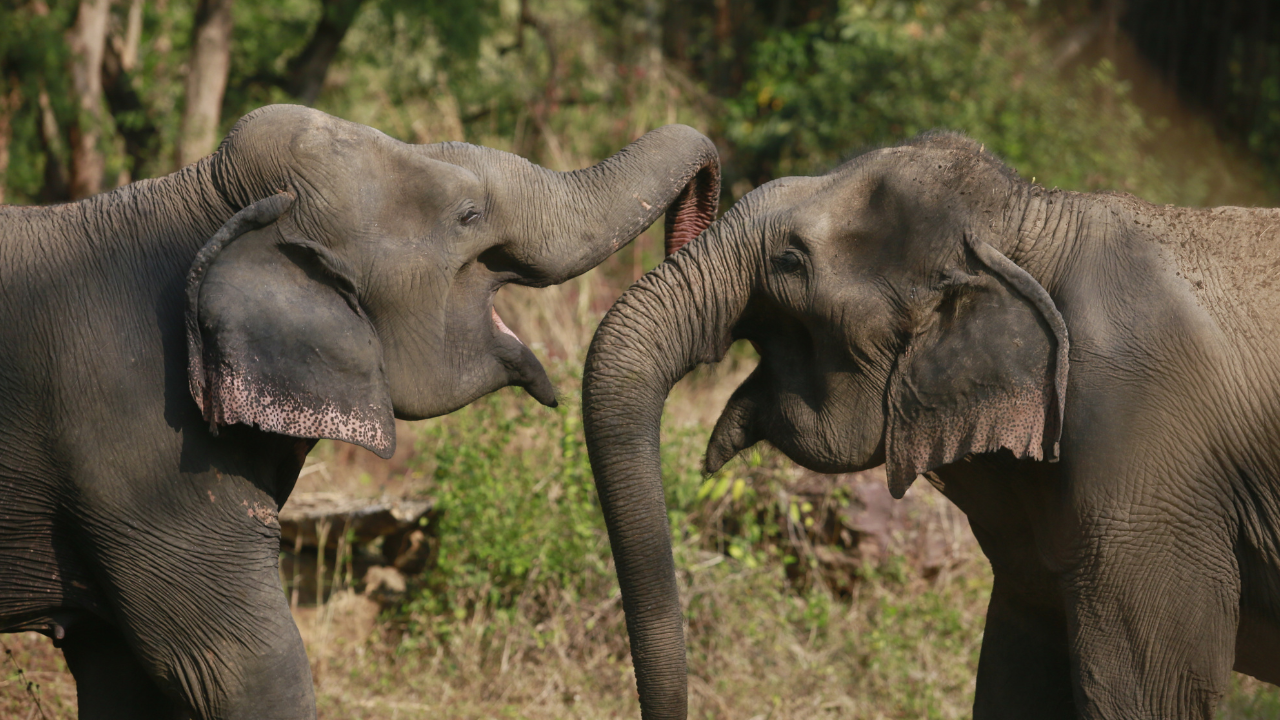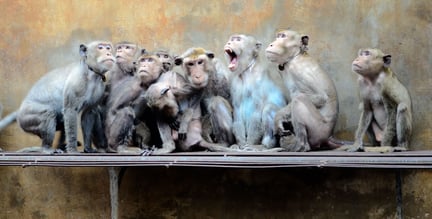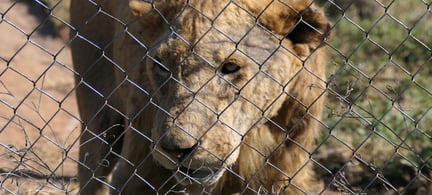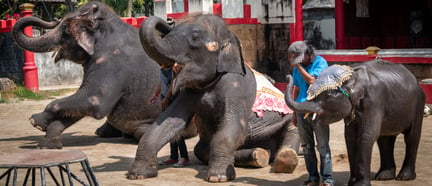How Captive Elephants Suffer
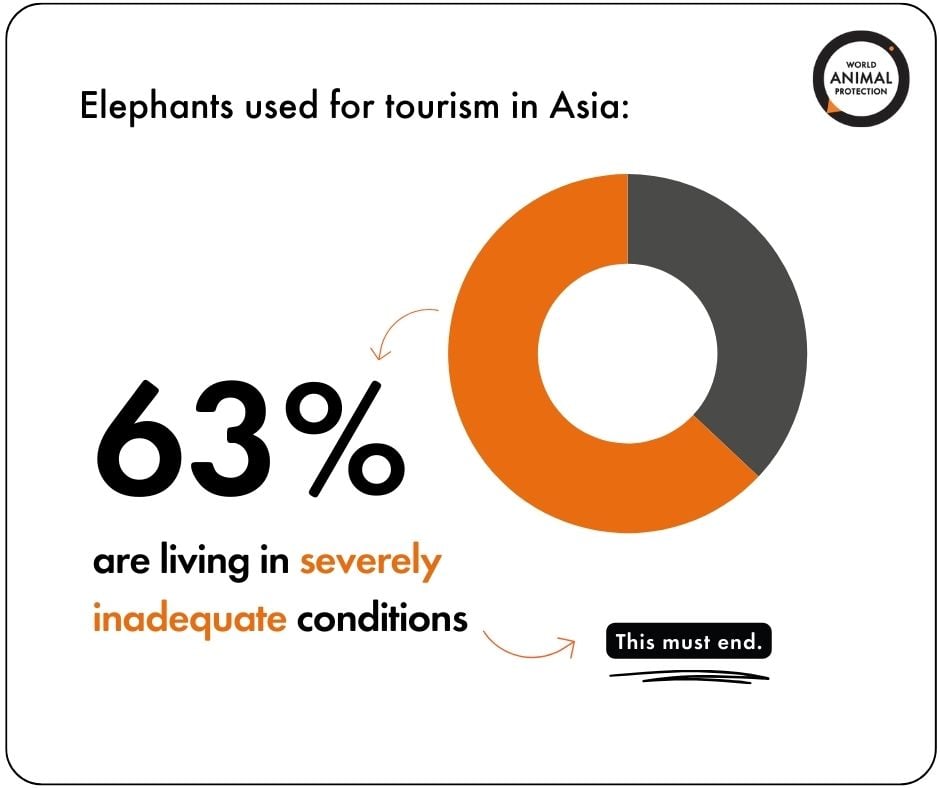
Poor welfare can have long-lasting physical and psychological effects.
Elephants bred through wildlife farming for entertainment endure continuous suffering, from the moment they undergo training until their eventual demise, which could span decades in captivity.
The consequences of poor welfare leave lasting scars, evident in the repetitive, purposeless movements such as swaying and head bobbing, and the manifestation of complex post-traumatic stress disorder from constant chaining.
Elephants are socially intricate animals
These intelligent and socially intricate animals, with a capacity for complex thoughts and emotions, endure profound suffering in captivity, as their natural social structures cannot be replicated artificially.
Sadly, returning most elephants to the wild is not feasible due to their lack of essential survival skills. However, there is hope for a more humane existence for these magnificent creatures by establishing observation-only, elephant-friendly camps that mimic the wild as closely as possible.
FAQs
How many breeds of elephants are there?
There are three extant species of elephants: the African bush elephant, the African forest elephant, and the Asian elephant. All elephants are recognised as sentient beings, displaying complex emotions, social structures, and high levels of intelligence.
What is elephant breeding?
Captive Elephant Breeding is a form of Wildlife Farming where elephants are farmed for profit. These majestic creatures are now subjected to captivity, breeding, and exploitation to generate income at the expense of their well-being.
Can elephants breed in captivity?
Elephants can breed in captivity, but their well-being depends on providing appropriate conditions, space, social interactions. In the wild, female calves are cared for by their mothers for four to five years and supervised for several more years. Male calves tend to leave the herd between 10 and 15 years of age. Separation begins with the mother chained securely at her resting spot and the calf roaming free.


